Publications
The papers accepted for presentation are published as chapters of a volume with the same title as the Conference. The PHI Series (https://www.crcpress.com/PHI/book-series/PHII) is published by Taylor & Francis as a CHAM production, and it will indicate as sponsors the following academic and scientific organizations: FCT, FAUL, and UNL
The PHI Series is indexed in CrossRef and EBSCO and is underevaluation by Scopus and Web of Knowledge.
The link to CHAM and RUN - Repository of Universidade Nova de Lisboa: https://run.unl.pt/simple-search?query=CHAM and also be accessible through http://eds.a.ebscohost.com/eds/search/basic?vid=3&sid=5b3546aa-c5ff-4383-957f-1e08966ff975%40sessionmgr4007
PHI’S NEW PROCEDURE: All participants who have paid the registration fee will receive a copy of the book in digital format during the congress. All authors with accepted paper must sign a declaration accepting common creative license (CC BY 4.0), authorizing Taylor & Francis to sell the paper commercially.
CALL ATENTION: The book’s printed version can be purchased at the Congress with a significant discount on the retail price.
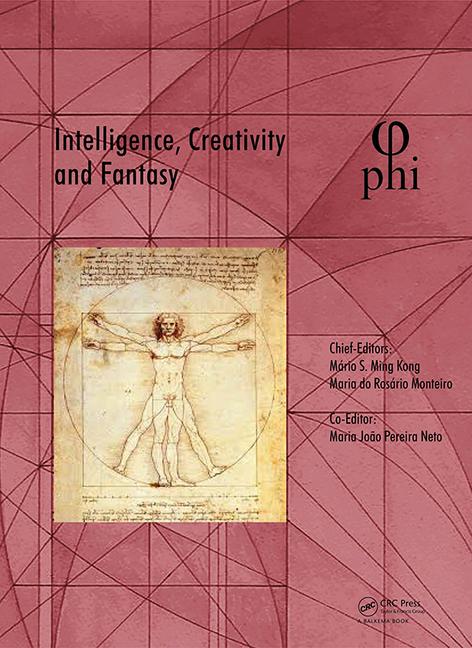
Intelligence, Creativity and Fantasy
Chief Editors
Mário S. Ming Kong
Maria do Rosário Monteiro
Co-Editor
Maria João Pereira Neto
CRC Press
Published September 24, 2019
Reference - 578 Pages
ISBN: 978036727719-2 (Hbk)
ISBN: 9780429297755 eBook (VitalSource)
Doi: https://doi.org/10.1201/9780429297755
PHI 2019 (Book Series) was edited by Taylor & Francis Group, indexed to the most important scientific data bases, such as ISI, SCOPUS, EBSCO Thomson Reuters, CrossRef, Web of Science, ELSEVIER Products, Web of Knowledge, ProQuest,PHI

The texts presented in Proportion Harmonies and Identities (PHI) - INTELLIGENCE, CREATIVITY AND FANTASY were compiled with the intent to establish a multidisciplinary platform for the presentation, interaction and dissemination of research. The aim is also to foster the awareness and discussion on the topics of Harmony and Proportion with a focus on different visions relevant to Architecture, Arts and Humanities, Design, Engineering, Social and Natural Sciences, and their importance and benefits for the sense of both individual and community identity. The idea of modernity has been a significant motor for development since the Western Early Modern Age. Its theoretical and practical foundations have become the working tools of scientists, philosophers, and artists, who seek strategies and policies to accelerate the development process in different contexts.
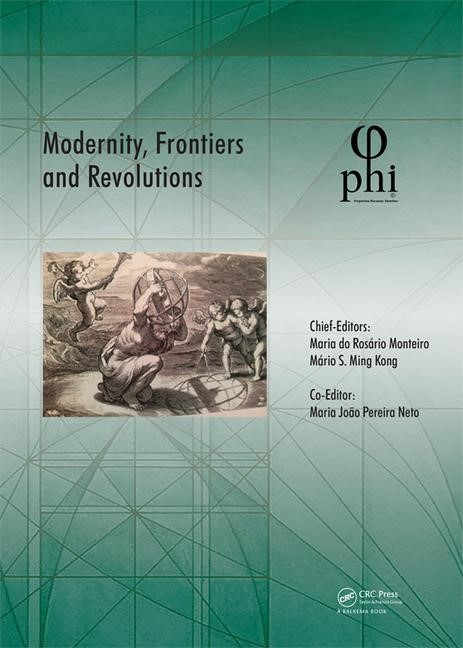
Modernity, Frontiers and Revolutions
Chief Editors
Maria do Rosário Monteiro
Mário S. Ming Kong
Co-Editor
Maria João Pereira Neto
ISBN: 9780367023973 (Hbk)
ISBN: 9780429399831 (eBook)
Doi: https://doi.org/10.1201/9780429399831
PHI 2018 (Book Series) was edited by Taylor & Francis Group, indexed to the most important scientific data bases, such as ISI, SCOPUS, EBSCO Thomson Reuters, CrossRef, Web of Science, ELSEVIER Products, Web of Knowledge, ProQuest,PHI 2018 (Book Series) was edited by Taylor & Francis Group, indexed to the most important scientific data bases, such as ISI, SCOPUS, EBSCO Thomson Reuters, CrossRef, Web of Science, ELSEVIER Products, Web of Knowledge, ProQuest,

The texts presented in Proportion Harmonies and Identities (PHI) - MODERNITY, FRONTIERS AND REVOLUTIONS were compiled with the intent to establish a multidisciplinary platform for the presentation, interaction and dissemination of research. It also aims to foster awareness of and discussion on the topics of Harmony and Proportion with a focus on different visions relevant to Architecture, Arts and Humanities, Design, Engineering, Social and Natural Sciences, and their importance and benefits for the sense of both individual and community identity. The idea of modernity has been a significant driver of development since the Western Early Modern Age. Its theoretical and practical foundations have become the working tools of scientists, philosophers, and artists, who seek strategies and policies to accelerate the development process in different contexts.
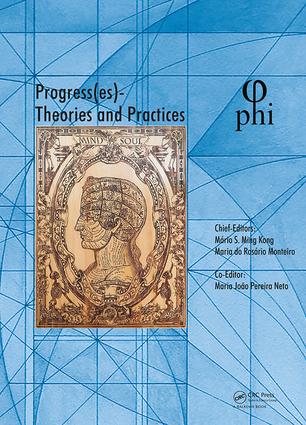
Progress(es) - Theories and Practices
Chief Editors
Mário S. Ming Kong
Maria do Rosário Monteiro
Co-Editor
Maria João Pereira Neto
ISBN: 9780815374152 (Hbk);
ISBN: 9781351242691 (eBook PDF);
Doi: https://doi.org/10.1201/9781351242691-1
The congress proceedings of PHI 2017 was edited by Taylor & Francis Group, indexed to the most important scientific data bases, such as ISI, SCOPUS, EBSCO Thomson Reuters, CrossRef, Web of Science, ELSEVIER Products, Web of Knowledge, ProQuest,

The texts presented in Proportion Harmonies and Identities (PHI) - PROGRESS(ES) - THEORIES AND PRACTICES were compiled with the intent to establish a platform for the presentation, interaction and dissemination of research. It aims also to foster the awareness of and discussion on the topics of Harmony and Proportion with a focus on different progress visions and readings relevant to Architecture, Arts and Humanities, Design, Engineering, Social and Natural Sciences, Technology and their importance and benefits for the community at large. Considering that the idea of progress is a major matrix for development, its theoretical and practical foundations have become the working tools of scientists, philosophers, and artists, who seek strategies and policies to accelerate the development process in different contexts.
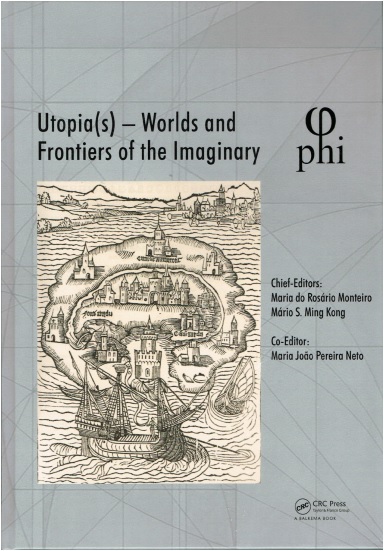 Utopia (s) – Worlds and Frontiers of the Imaginary
Utopia (s) – Worlds and Frontiers of the Imaginary
Chief Editors
Maria do Rosário Monteiro
Mário S. Ming Kong
Co-Editor
Maria João Pereira Neto
ISBN: 978-1-138-19748-0 (Hbk);
ISBN: 978-1-315-26532-2 (eBook PDF);
Doi: https://doi.org/10.1201/9781315265322
The congress proceedings of PHI 2016 was edited by Taylor & Francis Group, indexed to the most important scientific data bases, such as ISI, SCOPUS, EBSCO Thomson Reuters, CrossRef, Web of Science, ELSEVIER Products, Web of Knowledge, ProQuest,

The idea of Utopia springs from a natural desire of transformation, of evolution pertaining to humankind and, therefore, one can find expressions of “utopian” desire in every civilization. Having to do explicitly with human condition, Utopia accompanies closely cultural evolution, almost as a symbiotic organism. Maintaining its roots deeply attached to ancient myths, utopian expression followed, and sometimes preceded cultural transformation.
Through the next almost five hundred pages (virtually one for each year since Utopia was published) researchers on the fields of Architecture and Urbanism, Arts and Humanities present the result of their studies on the different areas of expertise under the umbrella of Utopia. Past, present, and future come together in one book. They do not offer their readers any golden key. Many will leave questions unanswered, as they should.
The texts presented in Proportion Harmonies and Identities - UTOPIA(S) WORLDS AND FRONTIERS OF THE IMAGINARY were compiled with the intend to establish a platform for the presentation, interaction and dissemination of researches. It aims also to foster the awareness and discussion on the topic of Harmony and Proportion with focus on different utopian visions and readings relevant to arts, science and humanities and its importance and benefits for the community at large.
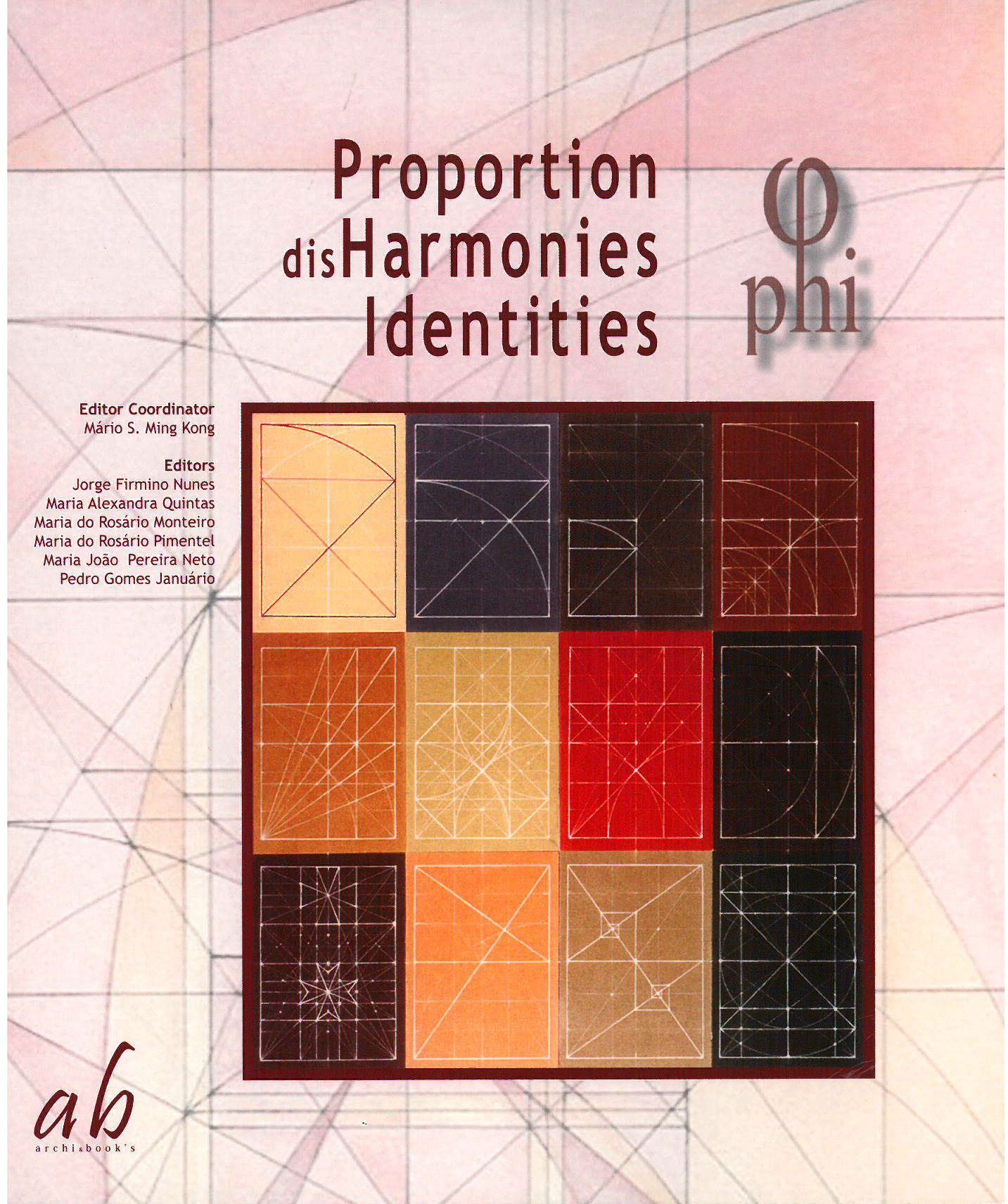 Proportion disHarmonies Identities
Proportion disHarmonies Identities
Editor Coordinator
Mário S. Ming Kong
Editors
Jorge Firmino Nunes
Maria Alexandra Quintas
Maria do Rosário Monteiro
Maria do Rosário Pimental
Maria João Pereira Neto
Pedro Gomes Januário
ISBN: 978-989-97265-0-5
"O número, a medida, as construções geométricas, a relação entre dimensões, isto é, a proporção, são expressões de harmonia e ritmo e, mais do que isso, são uma fonte de beleza nas coisas na natureza, como os cristais, as plantas, os animais, mas também os artefactos humanos, como os edifícios e as obras de arte em geral. Esta é uma ideia antiga que corresponde à noção pitagórica de que o mundo é uma criação matemática harmoniosa e que, de modo a participar nessa harmonia, as coisas que fazemos têm de obedecer às mesmas leis matemáticas. Proporção (des)Harmonias e Identidades visa promover a consciencialização e reflexão sobre a importância deste tema com a divulgação de pesquisas de variados campos do saber."



